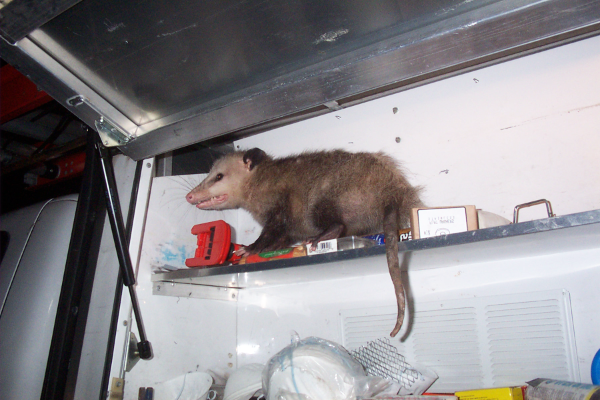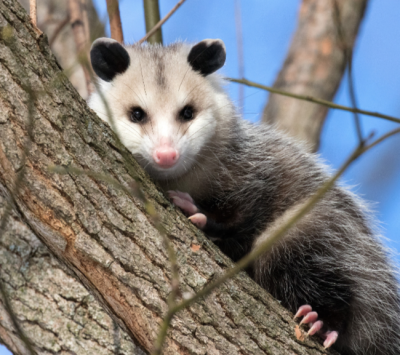Opossum Diseases:

Introduction:
An opossum is a scavenger mammal that can be found near your home. It is about the size of a house cat with rounded ears and a long tail. Opossums may be 2 to 3 feet long and weigh 15 pounds. They can hang from a tree branch through opposable toes on the hind feet. They have some ecosystem advantages, so before killing them, think about how they help to get rid of insects and rodents. Their habitat can be moist, wooded, and open fields. They can feed on green plants, nuts, snakes, frogs, and birds.
The body temperature of an opossum is much lower than that of cats and other animals, which keep it resistant against diseases. But it is a disease carrier and may transmit viruses to animals and humans. Their sharp pointed teeth can cause severe infection and injury to dogs and cats, so they are dangerous and can cause many infectious diseases in animals and humans.
Here is a list of the most common diseases that are due to opossums:
Leptospirosis:
The incubation of spirochete bacteria, leptospira is the leading cause of this disease. Mostly domestic animals and humans are affected by it. Animals affected by this disease pass organisms in their urine.
Target:
- Bloodstream, kidney, and liver
- Failure of kidney
- Failure of liver
Treatment:
- Rehydration with antibiotics
Tuberculosis:
This disease is common in deer and cattle can be caused by opossum scratches, which causes the hosting of TB bacteria. Thus, there is a need to avoid direct contact with these animals.
Symptoms:
- Fever
- Cough
- Loss of appetite
- Weakness
- Lymph node infection
Treatment:
- Therapy
- Antibiotics
Tularemia:
It is due to a bacterium called Francisella tularensis and it attacks certain body parts like lungs, eyes, and skin. This disease is spread quickly from one animal to another and may affect humans. It can be transferred from one mammal to another through direct contact and insect bites. Uleroglandular tularemia is fatal for skin, and it can cause fever, headaches, skin ulcers, and swollen lymph nodes.
Treatment:
- Antibiotics.
Rabies:
It is spread when someone comes into direct contact with an opossum, but it is not a fatal disease. However, one needs to be careful not to be in direct connect with opossums who are active during the daytime.
Salmonella:
It is a bacterial infectious disease that is very common in the world. It can be fatal for those who have a weak immune system. Contaminated food and water are a significant source of this disease, so be careful of direct contact with an opossum in this situation.
Symptoms:
- Diarrhea
- Vomiting
Toxoplasmosis:
It is a foodborne illness. It is fatal for pregnant women or those with compromised immune systems. This parasitic infection may cause death.
Conclusion
An opossum can spread several diseases to animals and humans, so there is a need to avoid direct contact with it. You should protect your health by taking the necessary steps to properly prevent and repel opossums from your home.

